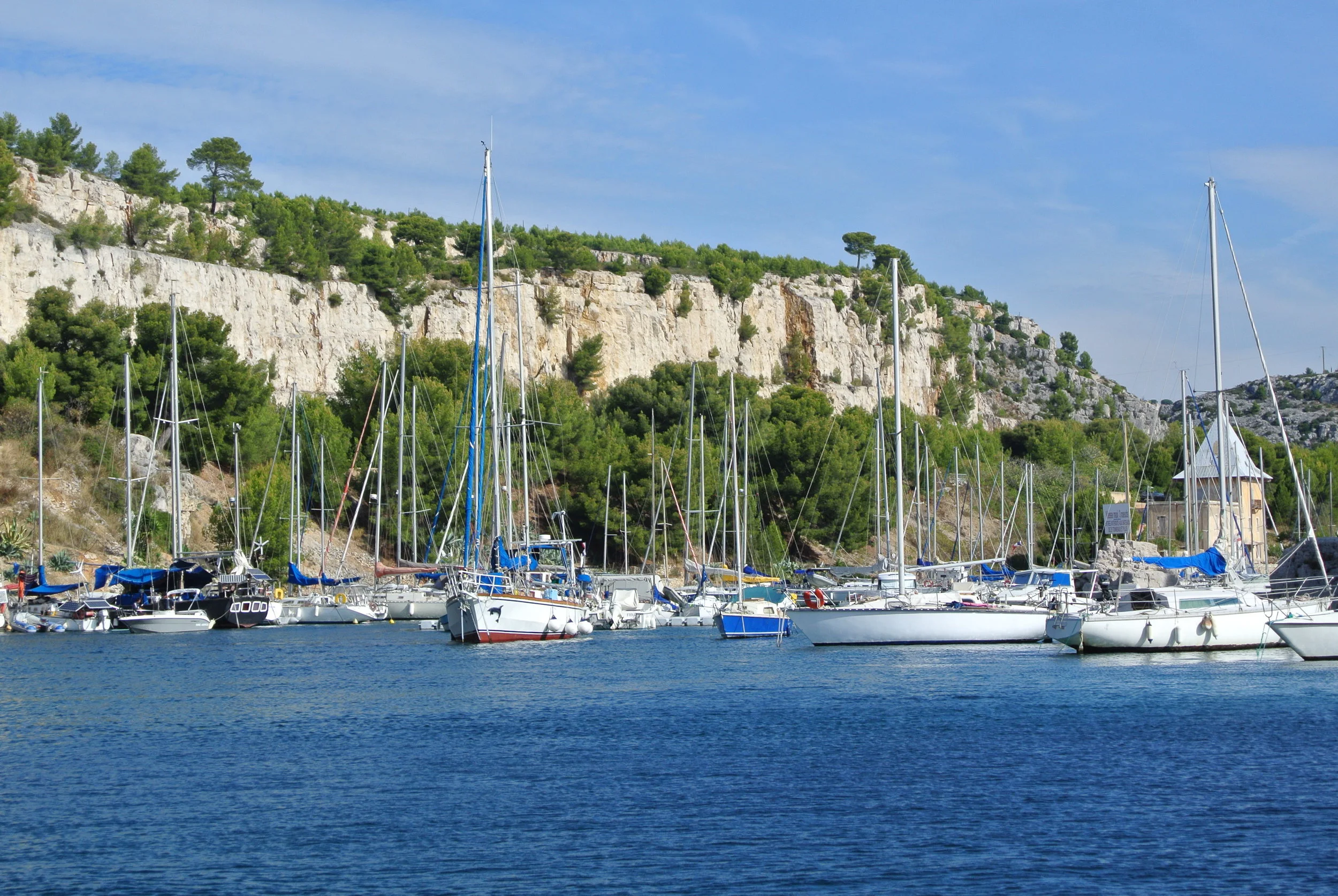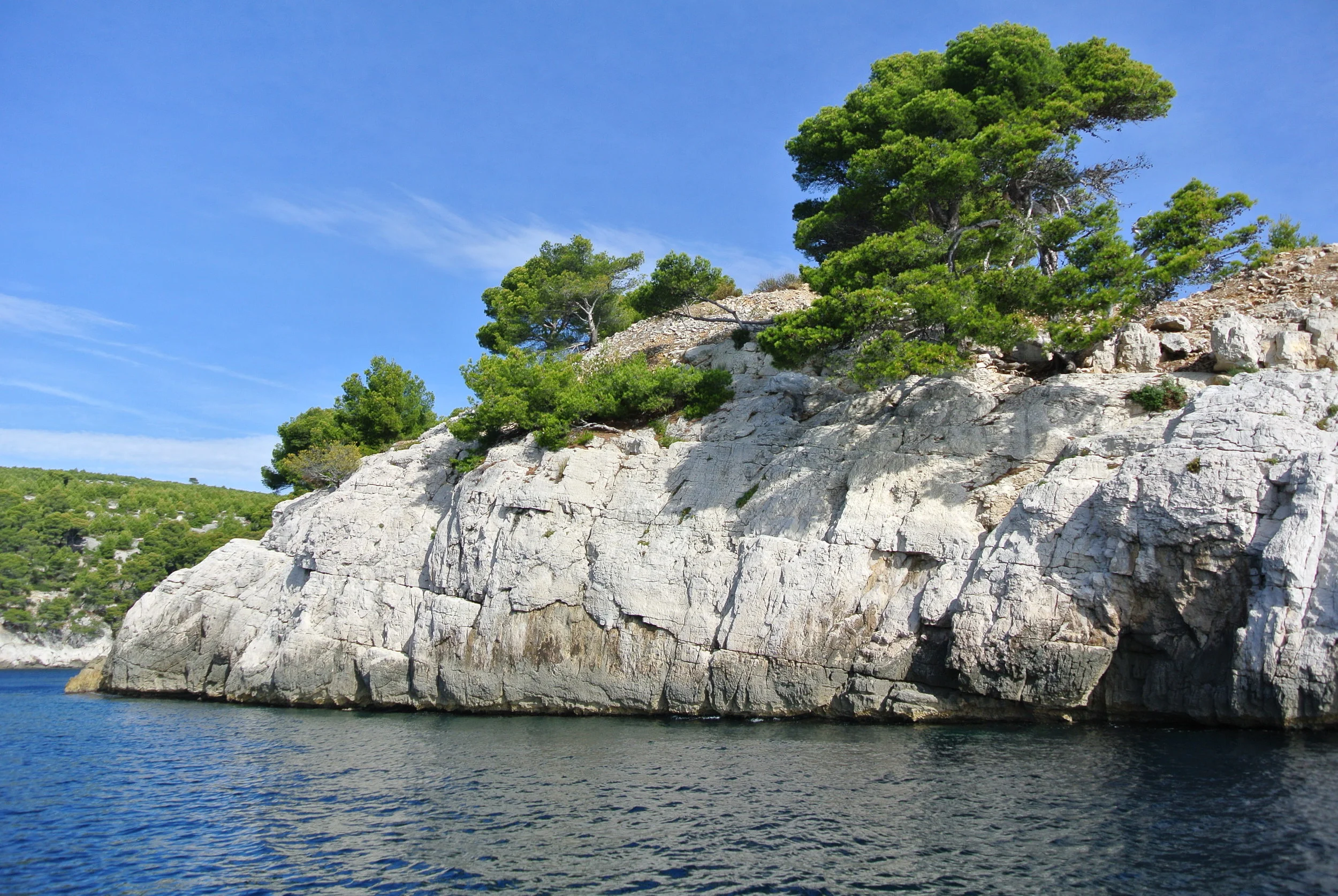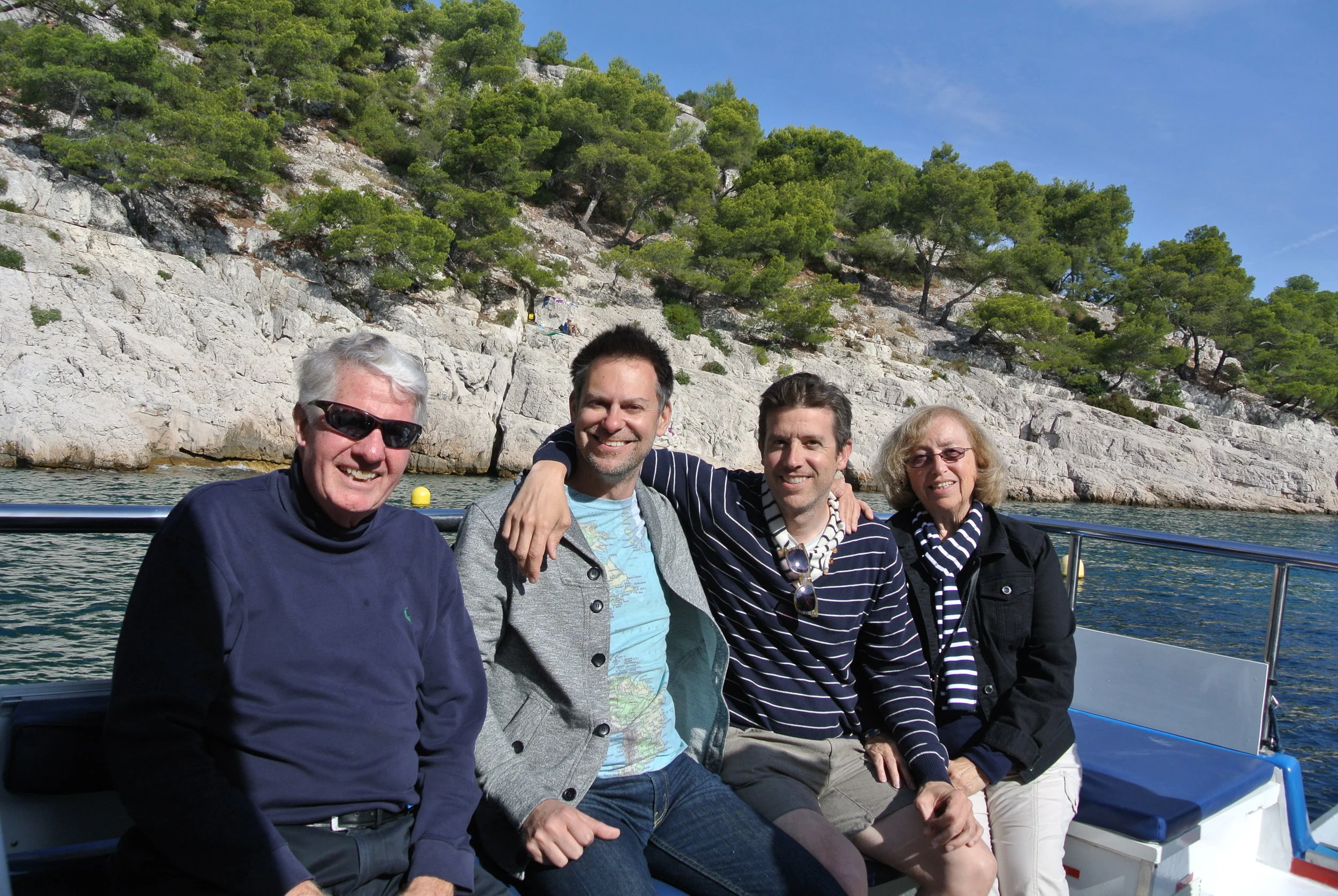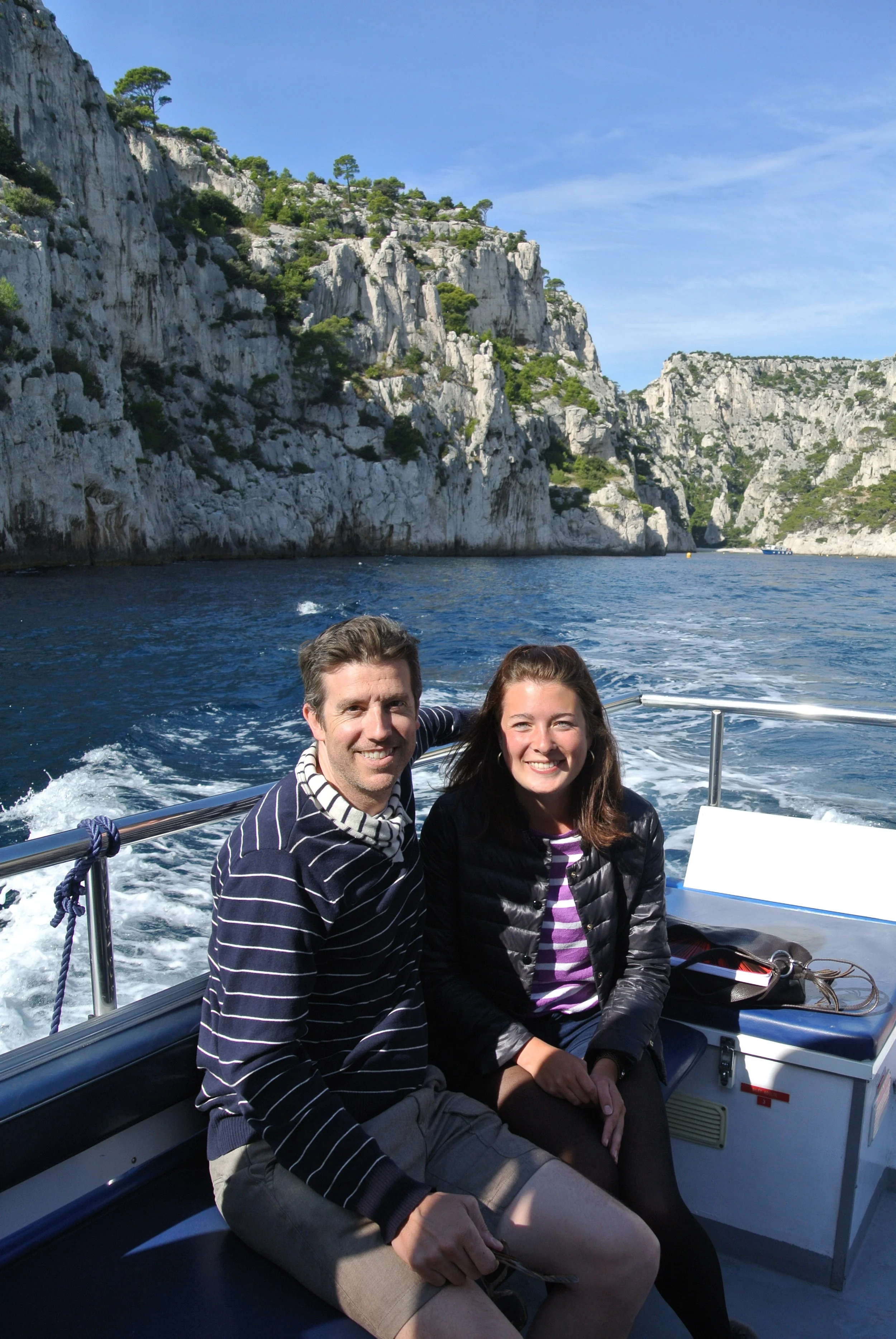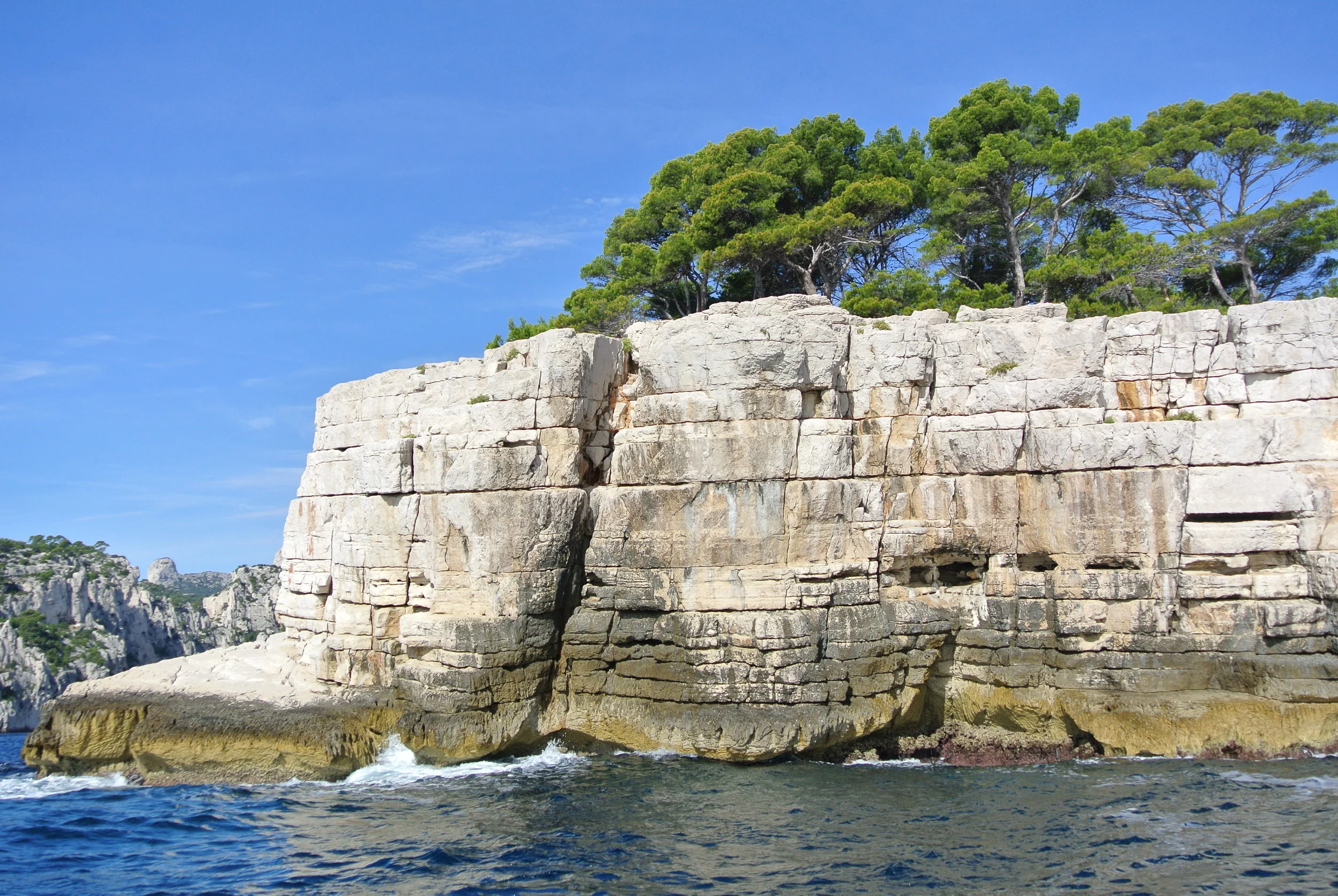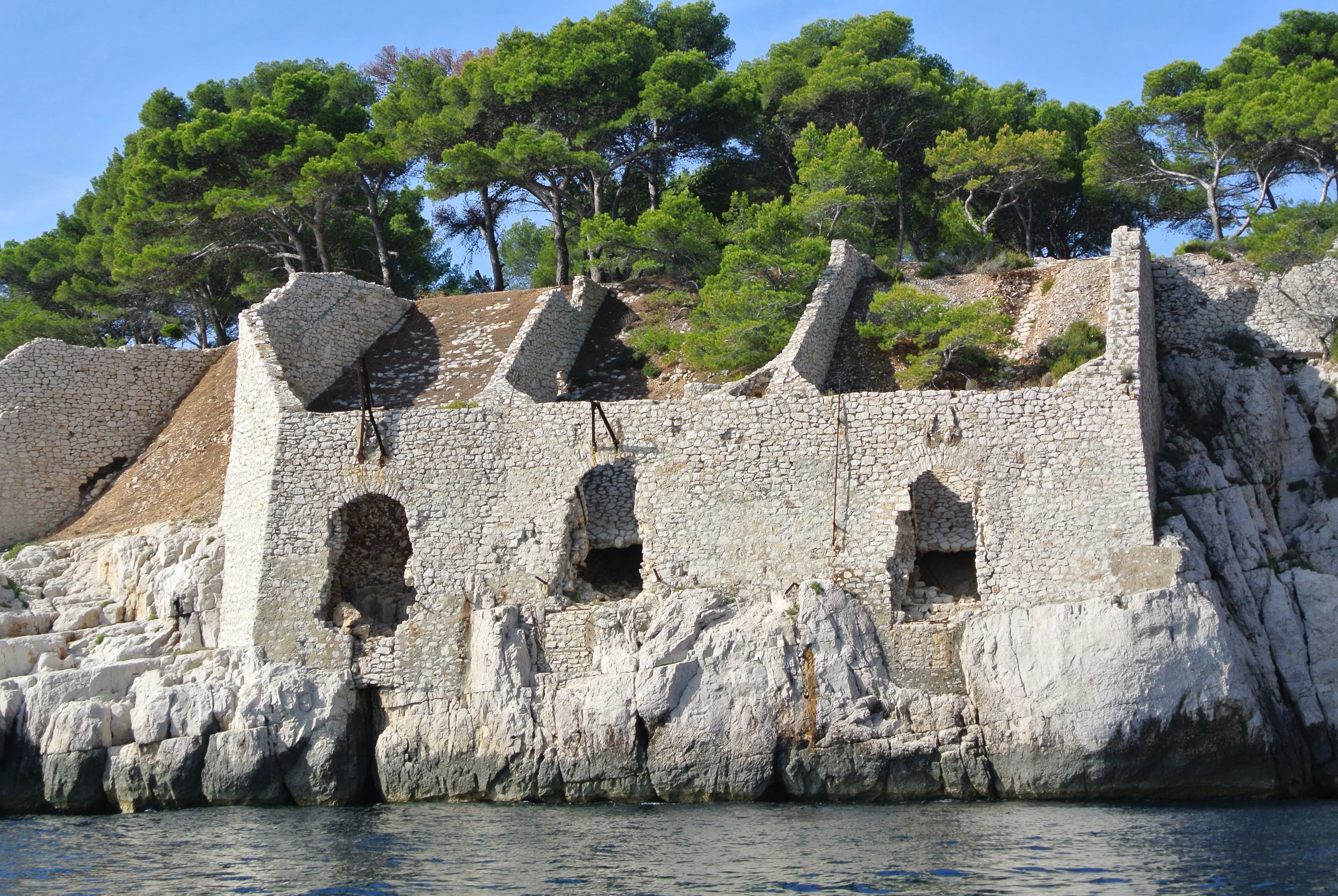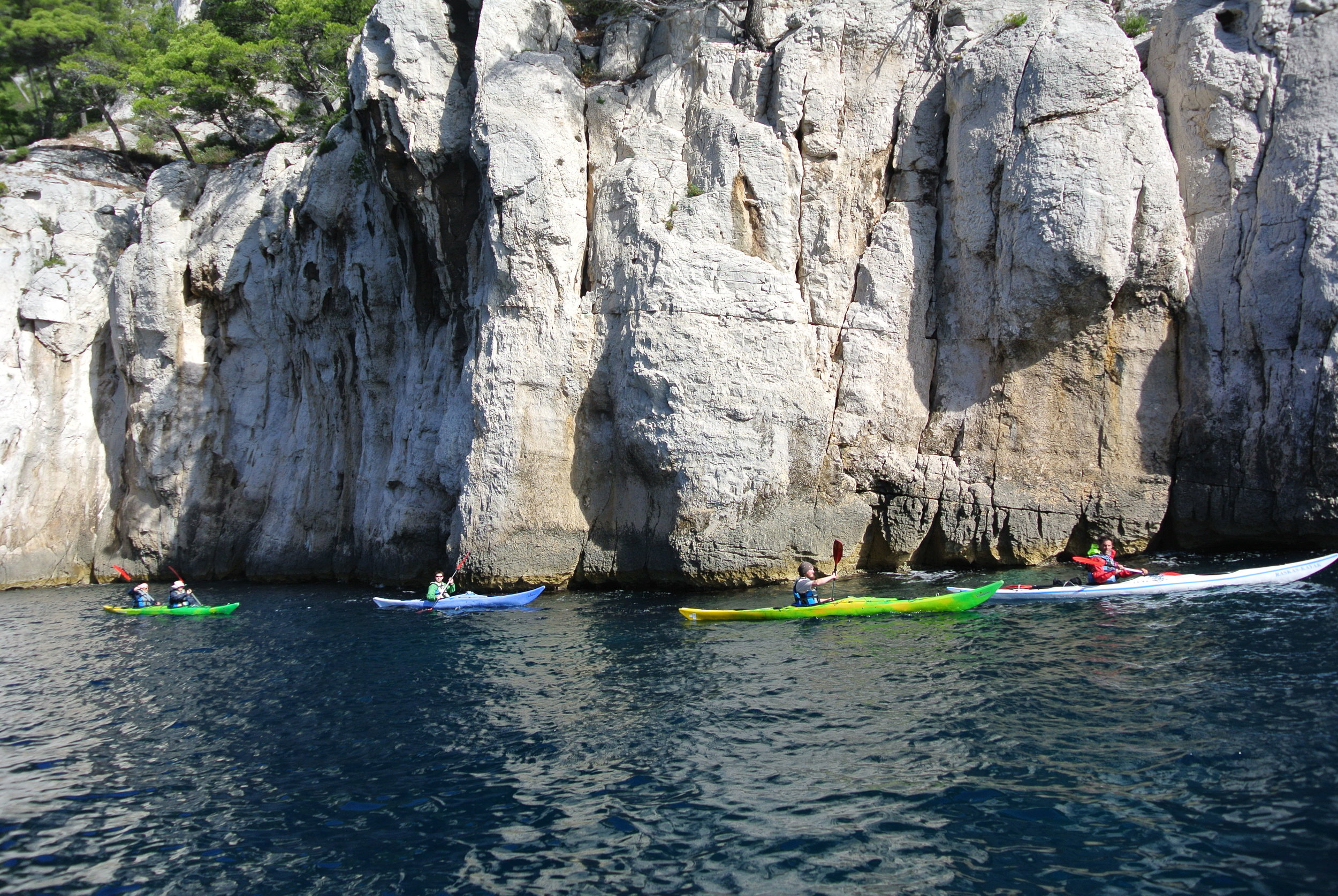Calanque Port-Miou, Calanque Port-Pin and Calanque d’En-Vau: The French Riviera limestone cliffs provide a picturesque day trip if you’re in Provence.
The Port of Cassis on the French Riviera, with its pretty backdrop of the limestone cliffs called calanques
It may be difficult to imagine taking time away from the idyllic town of Aix-en-Provence, France. However, not far from its leafy boulevards and gurgling fountains, the laidback coastal fishing village of Cassis, located between Marseilles and Bandol, makes for an ideal day trip.
Wally’s mom, affectionately referred to as “The Shirl” had brought and read about the Calanques of Cassis, white limestone cliffs at the water’s edge, in Rick Steves’ Provence & The French Riviera travel guide. So I suppose, in a way, we have Mr. Steves to thank for our excursion.
“Limestone from the calanques of Cassis was used to build the Suez Canal as well as the base of the Statue of Liberty.”
How to Get There
The four of us set off for Cassis and took the train from the Aix-en-Provence TGV railway station to Marseille. At the Gare de Marseille Saint-Charles, we purchased tickets to the Gare de Toulon train station, about 15.5 miles southeast of Marseille.
Once in Toulon, we boarded a bus that twisted and wound its way down a steep hillside until we arrived at the Port of Cassis.
Wally’s dad, Duke, Wally and the infamous Shirl on their boat excursion to see the calanques
The Calanques
Chartered boat tours are available for different durations. You can visit the first three in a 45-minute trip, or go as far as all nine in one and a half hours.
We opted for the 45 minute excursion, which included Port-Miou, Port-Pin and d’En-Vau.
The name of our boat was Le Calendal, a small vessel that holds a maximum of 12 people.
On our voyage, we met and struck up a conversation with a charming au pair from Düsseldorf, Germany named Alexandra.
Wally with his new acquaintance, a German au pair
As our boat departed the harbor, our captain, Didier Crespi, pointed out the 14th-century fortress, Château de Cassis, built atop a cliff that juts out into the Mediterranean. Converted into a luxury hotel, the grounds are not open to the public, but should you wish to see them, you can book a junior suite for $350, or opt for the Chloe Suite, with a private terrace overlooking the azure waters of the Cote D'Azur for $690.
We passed the remains of a ruined quarry building on Pointe Cacau near the Calanque of Port-Miou.
The struggle of nature: Water wears away at the cliffs while plant life somehow finds a way to take hold
The craggy limestone formations are dotted with pine and juniper trees that have taken root and grow in minimal soil amongst the cracks and crevices.
The remains of a limestone quarry, a popular building material and primary export for the town
Captain Crespi told us that white limestone was the primary export of Cassis and provided the natural building material used to construct quays in major port cities from Alexandria to Algiers, as well as the channel walls of the Suez Canal, connecting the Mediterranean with the Red Sea. This same stone was even used to create the base for the Statue of Liberty.
You can kayak, hike to a hidden beach, risk your life rock-climbing — or you can just take it all in on a boat excursion
Le Capitaine dropped anchor in the sheltered crystalline inlet of the Calanque d’En Vau. The sea was a brilliant blue and shimmered like liquid glass. A school of silver-skinned fish paused at the side of our boat as if they were accustomed to our captain’s comings and goings. He threw them some pieces of bread, which they excitedly nibbled at.
On our return to the harbor, we passed a restaurant perched atop the calanques that makes pastis, an anise-flavored spirit and aperitif.
From the water, we could see people relaxing on small private beaches (some of them nude), fishing and hiking. We even saw a rock climber scaling the face of a cliff while we moored.
The landscape was stunning and we all enjoyed our sunny afternoon on the water. –Duke

